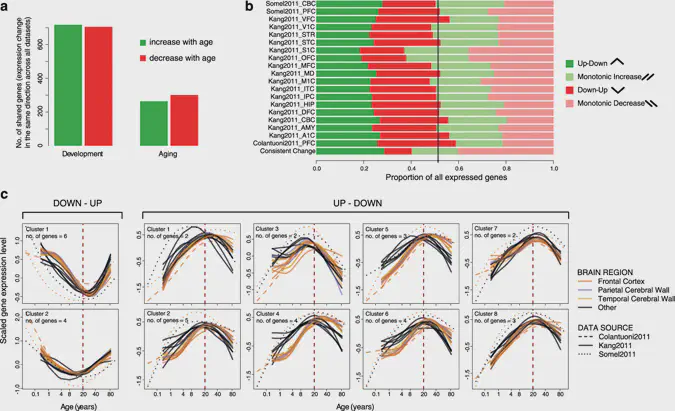Gene expression reversal toward pre-adult levels in the aging human brain and age-related loss of cellular identity (Research Article)
 Figure 2 - Scientific Reports
Figure 2 - Scientific Reports
Abstract
It was previously reported that mRNA expression levels in the prefrontal cortex at old age start to resemble pre-adult levels. Such expression reversals could imply loss of cellular identity in the aging brain, and provide a link between aging-related molecular changes and functional decline. Here we analyzed 19 brain transcriptome age-series datasets, comprising 17 diverse brain regions, to investigate the ubiquity and functional properties of expression reversal in the human brain. Across all 19 datasets, 25 genes were consistently up-regulated during postnatal development and down-regulated in aging, displaying an “up-down” pattern that was significant as determined by random permutations. In addition, 113 biological processes, including neuronal and synaptic functions, were consistently associated with genes showing an up-down tendency among all datasets. Genes up-regulated during in vitro neuronal differentiation also displayed a tendency for up-down reversal, although at levels comparable to other genes. We argue that reversals may not represent aging-related neuronal loss. Instead, expression reversals may be associated with aging-related accumulation of stochastic effects that lead to loss of functional and structural identity in neurons.